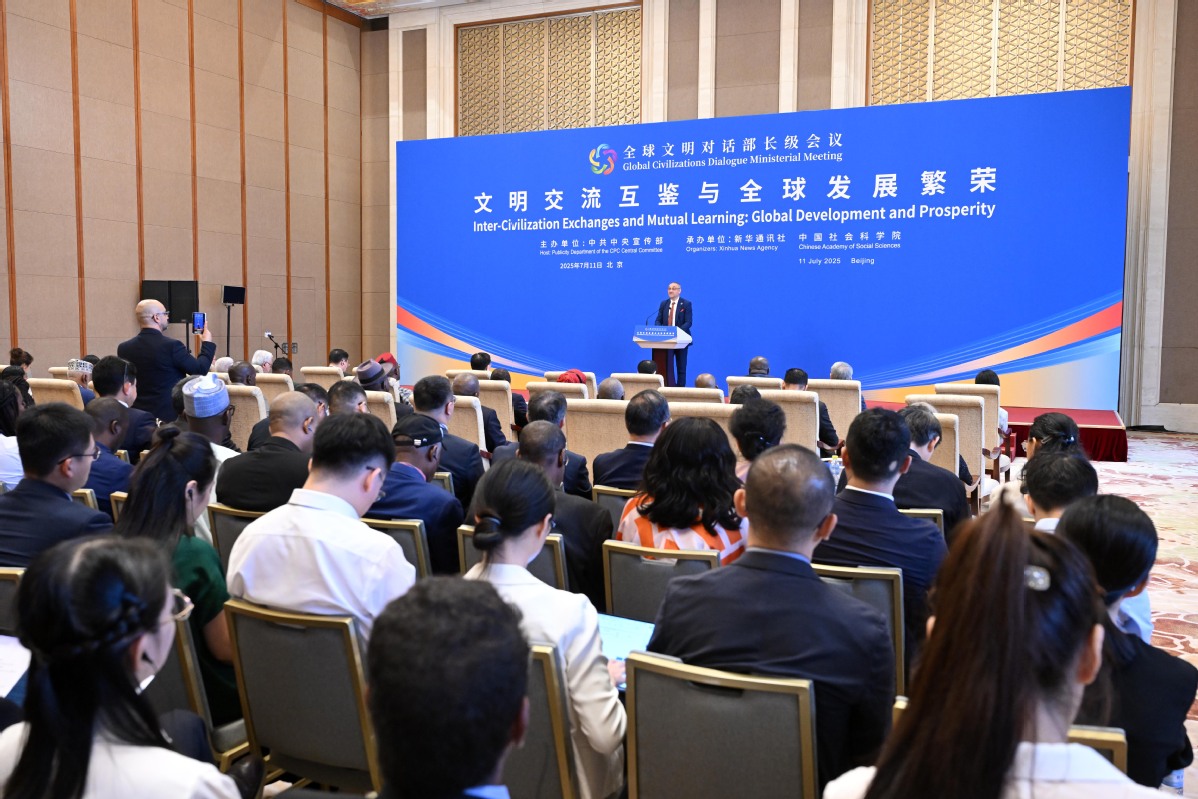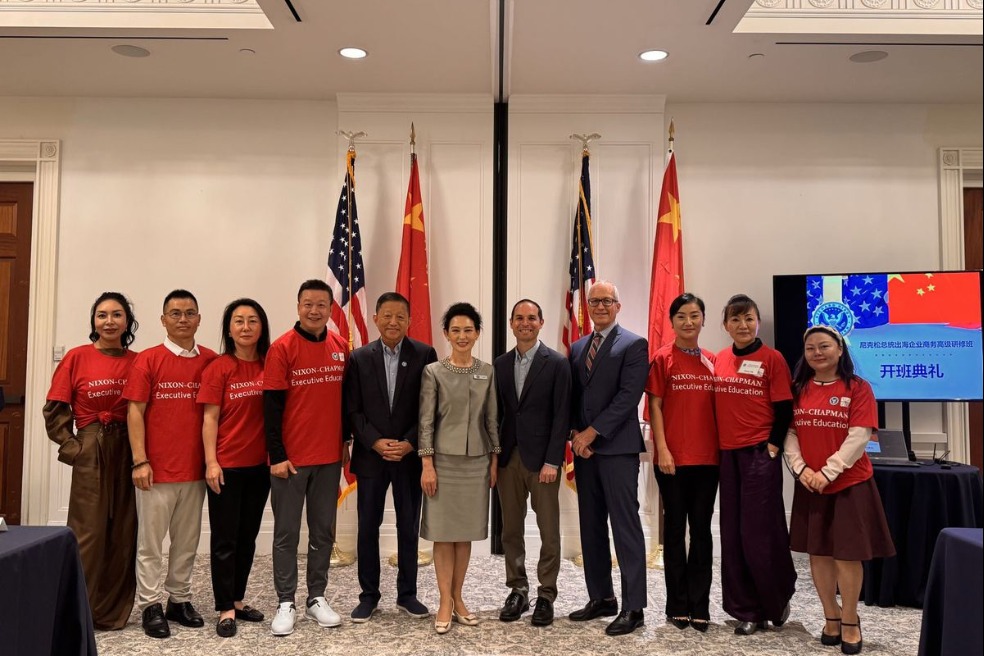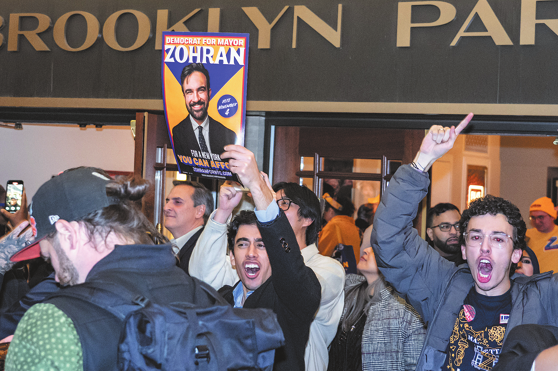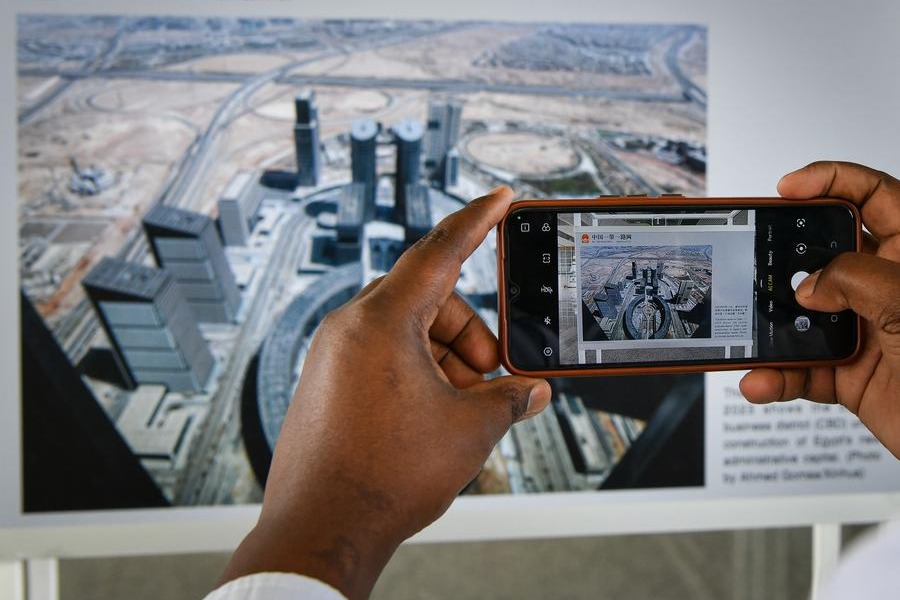Arab scholars: Civilization dialogue vital for progress of humanity


Exchange and mutual learning between civilizations is a vital process for their prosperity and advancement. Cooperation between two ancient civilizations — Chinese and Arab — brings many benefits that reflect positively on prosperity and the building of bridges of understanding and cooperation between peoples, Arab scholars said.
They made the remarks as the Global Civilizations Dialogue Ministerial Meeting was held in Beijing on Thursday and Friday, with a focus on the importance of cultural diversity and mutual learning in advancing human progress.
Themed "Safeguarding Diversity of Human Civilizations for World Peace and Development", the two-day meeting was co-hosted by the Publicity Department of the CPC Central Committee and the International Department of the CPC Central Committee. It attracted over 600 guests from 140 countries and regions.
Mohammad Ghazal, managing editor of English News at Aletihad News Centre in the United Arab Emirates, told China Daily that deepening dialogue and cultural exchange is crucial to combat stereotypes and strengthen bonds in today's fast-paced world, with media playing a pivotal role.
Citing an old Arab saying, "even if knowledge is far away in China, one should still seek it", he said the cooperation between the ancient Chinese and Arab civilizations, which has a history of nearly 2,000 years via the ancient Silk Road, yields immense benefits, fostering prosperity and building bridges of understanding and collaboration among peoples.
"The rich communication traditions between these two civilizations embody mutual respect and cooperation, their shared values promoting dialogue and peaceful coexistence. Notably, they share similarities that encourage diversity, cooperation and peace while opposing exclusivity and extremism," Ghazal said.
These practices offer a model for strengthening global partnerships supporting peace and development and for humanity's better future, he added, calling for more exchanges in more diverse forms across culture, industry, modern technologies and trade.
Abdulaziz Alshaabani, a researcher at the Al Riyadh Center for Political and Strategic Studies, in Riyadh, Saudi Arabia, said exchanges and mutual learning among civilizations are essential because no culture or nation holds all the answers.
"Civilizations thrive when they open up, share knowledge and respect each other's uniqueness," he said. "This spirit is key to human progress."
As Saudi Arabia and China are close and strategic partners, he said this relationship shows that equal dialogue builds trust, reduces misunderstanding, and opens doors for cooperation.
"This model teaches us the value of respect, shared interests and long-term partnership in promoting peace and development," Alshaabani added.
Najla Alzarooni, a researcher at the College of Public Policy of the University of Sharjah in the UAE, said that China has achieved remarkable success in connecting its civilization and ethnic diversity with the rest of the world through her personal experience.
She recalled her first trip to China in 2007, a time when most Arabs knew little about the Eastern nation. "Before I left, my mom said, 'Najla, be careful' and packed as much food as she could, as if I were traveling to the ends of the earth," she said. "Back then, we saw China as a closed box as we had no real idea what was inside."
Yet in under 20 years, the scholar said, China has not only linked its own civilization with others but, as a responsible major power committed to fostering greater smoothness and mutual understanding, has also advanced global dialogue among civilizations.
China's efforts to promote cultural and civilizational exchanges have been highly successful, she said.
Today, Chinese is taught in schools across the UAE, and her nieces and nephews can all speak the language, she said, as the UAE initiated the "Hundred Schools Project" in 2019 to incorporate Chinese language education into 100 public schools. Up to now, 171 UAE schools have offered Chinese language courses, and 71,000 students are learning Chinese.
"This represents a true exchange of cultural and civilizational heritage, and genuine dialogue between nations," she said.































